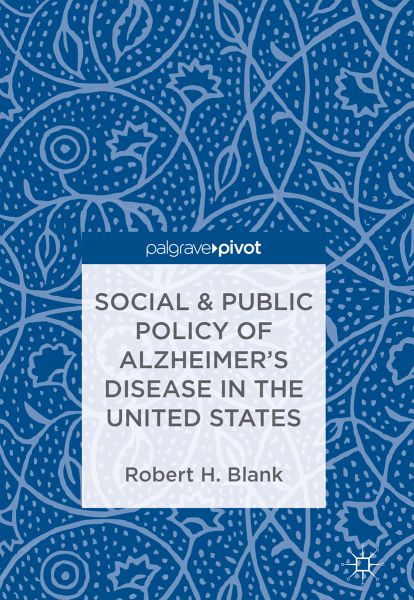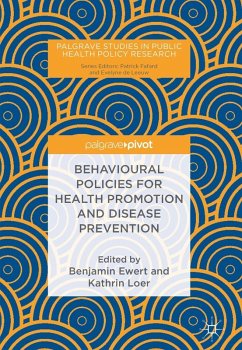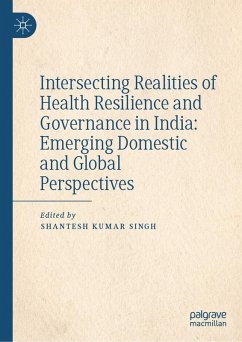
Social & Public Policy of Alzheimer's Disease in the United States (eBook, PDF)
Versandkostenfrei!
Sofort per Download lieferbar
44,95 €
inkl. MwSt.
Weitere Ausgaben:

PAYBACK Punkte
22 °P sammeln!
This book focuses on the public policy and political dimensions of Alzheimer's Disease and other dementias (AD/D) in the United States, with coverage of the global dimensions and relevant examples from other countries. Starting off with a discussion on the characteristics of AD/D and competing theories of their causes, their human and financial costs, and the increasing burden they place on all societies as populations age, the book examines in detail the range of policy issues they raise. These include funding policies, payment policy and regulatory functions, long-term services and support (...
This book focuses on the public policy and political dimensions of Alzheimer's Disease and other dementias (AD/D) in the United States, with coverage of the global dimensions and relevant examples from other countries. Starting off with a discussion on the characteristics of AD/D and competing theories of their causes, their human and financial costs, and the increasing burden they place on all societies as populations age, the book examines in detail the range of policy issues they raise. These include funding policies, payment policy and regulatory functions, long-term services and support (LTCS), public health and prevention policies.
The book analyses the big business surrounding AD/D and shows that the strong public fear of developing dementia heightens the likelihood of exploitation of vulnerable people looking for a technological fix. It examines both informal and formal caregivers and the heavy burden placed on families, primarily women, and recentpolicy attempts to strengthen LTCS. It also examines the latest evidence of potential risk-reduction and prevention strategies and the difficult issues surrounding advance directives, assisted suicide, and definitions of death that increasingly face policy makers. It concludes by analyzing the policy implications on possible technological scenarios.
Dieser Download kann aus rechtlichen Gründen nur mit Rechnungsadresse in A, B, BG, CY, CZ, D, DK, EW, E, FIN, F, GR, HR, H, IRL, I, LT, L, LR, M, NL, PL, P, R, S, SLO, SK ausgeliefert werden.
Alle Preise in Euro und inkl. der gesetzl. MwSt. | Innerhalb Deutschlands liefern wir preisgebundene Bücher versandkostenfrei. Weitere Informationen: bitte hier klicken
Support
Bitte wähle dein Anliegen aus:
Rechnungen
Bestellstatus
Retourenschein
Storno












